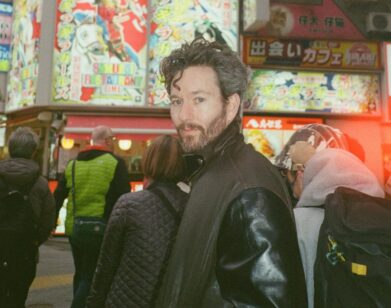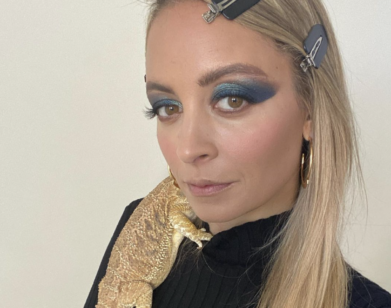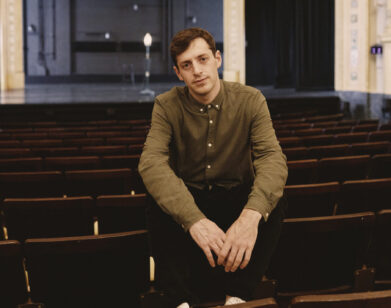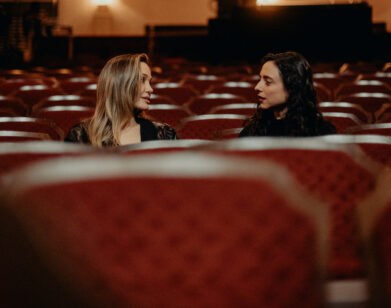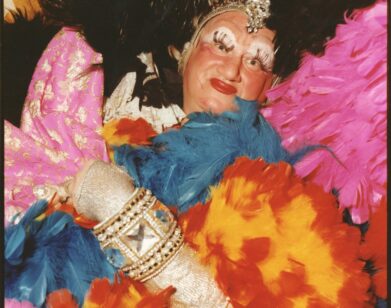Don Leeâ??s Lonely Hearts Club
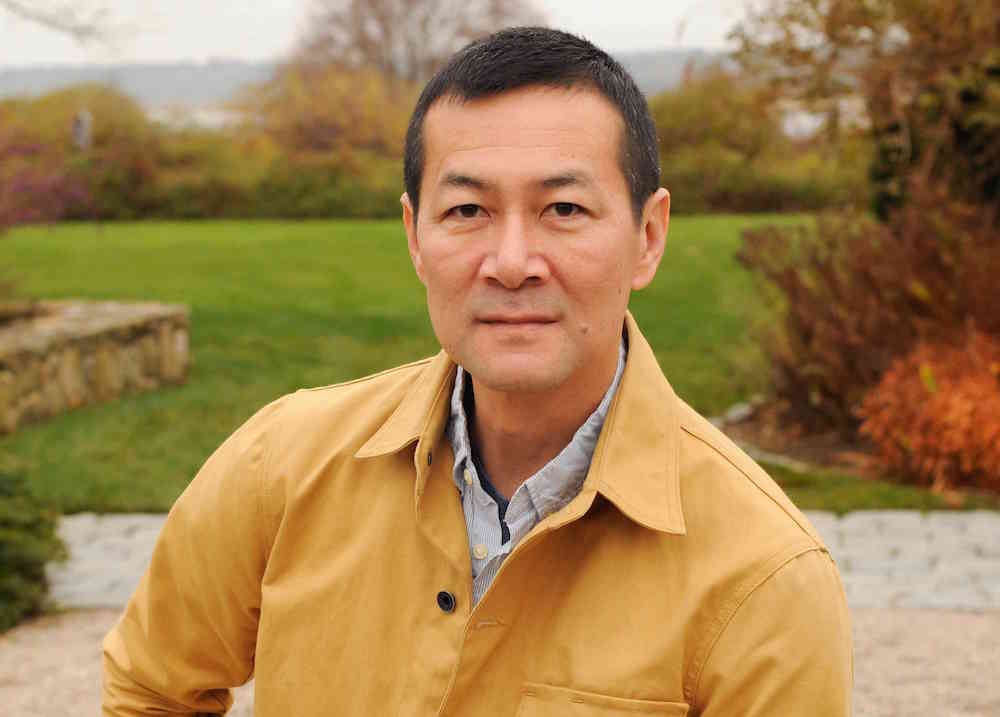
PHOTO COURTESY OF DON LEE.
In Don Lee’s new novel, Lonesome Lies Before Us (W. W. Norton & Company), Yadin Park, a former alt-country singer/songwriter cobbles together a meagre existence in a down-on-its-heels Northern Californian beach town. Working as a carpet installer, Park is in a long-term relationship with his boss’s daughter, Jeanette Matsuda. Once a photographer and now a hotel cleaner, Matsuda also bears the scars of abandoned dreams and as a couple, the two stitch together a threadbare, aging hippy kind of life. Then, Yadin’s old flame, the fading country music star Mallory Wicks, reappears.
Do not let the unassuming nature of these characters fool you: Lonesome Lies Before Us is a tale of heartbreak, love, and failure that will keep sounding in your head long after final page.
Currently a professor at Temple University’s MFA program, Don Lee’s previous work includes the short story collection Yellow (2001), as well as the novels Country of Origin (2005), Wrack and Ruin (2008), and The Collective (2012). A former long-time editor of the literary journal Ploughshares, Lee has received numerous awards such as an O. Henry Award, a Pushcart Prize and the Fred R. Brown Literary Award.
JEFF VASISHTA: Depicting the unraveling lives of everyday people struggling to get by is not easily done. It’s not sexy or glamorous, but you make these middle-aged characters compelling in a sad, endearing way. What made you choose them?
DON LEE: I was interested in portraying working-class characters who are nearing midlife, when they can’t exactly start anew, particularly in the wake of the great recession. I’m fascinated in general by people’s jobs and what they do on a day-to-day basis. I came to think that in order to pay homage to these rather ordinary people, I had to make the novel an anti-drama of sorts—a quiet, straightforward book, with no pyrotechnics, gimmicks, or flashy scenarios—yet prove that these people’s lives could still be full of yearning and dreams and heartbreak.
VASISHTA: When Joe, Jeanette’s father, tells her that there’s nothing worse than growing old alone it seems that it’s part of the reason Yadin and Jeanette are together. They don’t want to be lonely, even though they’re both after something more. It seems the reason many middle-aged couples are together.
LEE: A lot of couples, I think, end up together by default, thinking they don’t have any other options. Their partner might not be the person they really desire, yet it’s preferable to being alone. That’s the compromise that Yadin and Jeanette face, and the question in the novel is whether it’s enough for them—or for anyone.
VASISHTA: You go into extreme detail in this novel on number of things—hearing loss and Yadin’s illness, the inner workings of a hotel housekeeper’s job, and the life of a struggling musician who only records on old, outdated equipment—all with great authenticity. Did the story come first or did you have a rough idea in your head and then the research made the story fit together?
LEE: I tend to go into too much detail about such stuff, probably, but that’s always been part of my fiction, incorporating a lot of research. Plus, research is a great way to procrastinate from actually writing. The story came first in this particular book, but I got to know the characters by researching the nitty-gritty aspects of what’s preoccupying them: their jobs, hobbies, obsessions. I loved discovering all the minutiae about recording and guitars, Martins in particular. For example, I heard Jason Isbell talk about his custom D-35, and how, like all guitars, the more you play it, the better it sounds. Sometimes he’ll place it in front of a speaker before he leaves the house and put on Outkast or the like and crank the bass. The more the spruce top on the guitar vibrates, the better it’ll sound when playing it.
VASISHTA: Yadin always seems in search of something deeper and more profound with which to guide him. He toys with religion, but his true religion, I think, is his creativity.
LEE: You’re spot-on there. He turns to religion to find an inner spirituality that will sustain him after his world goes silent, after he loses his hearing. In my first draft, I had a throwaway line that he and Jeanette are in a choir together at a Unitarian Universalist church. I thought Yadin’s longing for grace and salvation could be explored more, so I got him looking at Catholicism and the poetry of Gerard Manley Hopkins, who was a Jesuit priest. Eventually, though, he realizes that his calling has been and always will be his music.
VASISHTA: With many great artists, success is just a byproduct of their talent. In the case of Yadin, however, he seems chronically afraid of being successful. In fact, he becomes physically ill when success comes close.
LEE: Adele has admitted that she vomits before almost every show out of stage fright. There are a lot of musicians with the same affliction: Rod Stewart, Rihanna, Pavarotti, Barbra Streisand, to name a few. For Yadin, his stage fright stems not only from general shyness and introversion, but also from the self-consciousness that arises from having been a kid with acne—a basic mortification that someone might look at him and be repulsed. I myself was a kid with acne, and I’ve suffered from stage fright. When I was a grad student, I was chagrinned to learn that being an author meant having to perform in front of people occasionally. I thought writers just holed up in a room. I sometimes wonder how many artists have subconsciously sabotaged their own careers because of stage fright.
VASISHTA: I, and I suspect many readers, want Mallory and Yadin to end up together. She’s everything he isn’t. She knows how to leverage the talent she has into success and celebrity and I couldn’t help but feel he could do with letting her steer the ship. But he can’t seem to get out of his own way to change his life.
LEE: I think all three of the main characters—Mallory, Yadin, and Jeanette—are incapable of change, and that’s the tragic basis of their loneliness. In a book like this, especially with lonesome in the title, I wanted to be true to the realities of relationships in which old flames reunite, to acknowledge that they’re often largely founded in nostalgia, ignoring the quotidian burdens of everyday life. Also, since we’re talking about alt-country here, I wanted the romances to imbue the sadness of the saddest of ballads.
VASISHTA: You’ve written about the fictional Rosarita Bay before. Northern California with its aging hippie/surf vibe is a perfect place for your marginal characters. Do you worry that Silicon Valley has made everything so expensive there that you might be forced to find a new location?
LEE: The town’s based on Half Moon Bay, which has defied development for decades, but I’m afraid that’s been changing. The luxury resort and golf course in the novel, which was being built in my previous Rosarita Bay novel, Wrack and Ruin, is based on the Ritz-Carlton that opened in Half Moon Bay after years of civic resistance. So I think you’re right: my characters and I are getting priced out, and we might have to move soon.
VASISHTA: I read that when you lived in Boston and edited Ploughshares from 1988 to 2007, you were often the only non-white person who attended literary events. You started out as an engineering major at UCLA and now you work in academia. Are the faces in your classroom growing more diverse than they once were? Do you envisage a time when writers of different ethnicities will stop being expected to write about their culture and being referred to first categorized by their ethnicity?
LEE: Yes, the faces are becoming more diverse, but pretty slowly. Likewise, I think writers of color still get trapped in an ethnic literature box in terms of what’s expected of them, i.e., always having to write about the immigrant experience or discrimination or the old country or whatnot. That’s partly why in this novel, I did something quietly subversive: I have a bunch of Asian, Latino, and African Americans as characters, but I never identify anyone by race. Hopefully in another generation or two, things will change.
VASISHTA: You lived all around the world and on both coasts in the U.S. People might assume that you’re surrounded by kindred creative spirits, but you’ve said in the past, “I’m alone much of the time, always feeling somewhat unmoored and adrift,” and that you are a “self-flagellating worrywart.” There seems to be a similarity there with Yadin. Do you think solitude and neurosis comes with the territory of being a writer?
LEE: Oh, yeah, for sure. Every writer and artist I know is neurotic as hell. That feeling of aloneness, I think that’s what drives most people into the arts—being alienated, not feeling that they belong. But I’m a lot less alone than I used to be. I’m engaged now to another fiction writer, Jane Delury, who has two daughters. Thankfully she’s as neurotic as I am.
LONESOME LIES BEFORE US IS OUT TODAY, JUNE 6, 2017.

